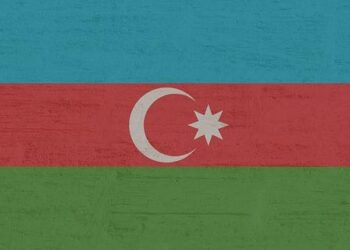Baku, Azerbaijan – Demonstrating ongoing commitment to humanitarian support, Azerbaijan has continued its comprehensive rehabilitation program for Ukrainian children affected by the recent conflict. The initiative, aimed at providing medical, psychological, and social assistance, underscores Azerbaijan’s dedication to fostering recovery and hope amid the challenges faced by war-impacted youth. As the program advances, authorities and aid organizations work closely to ensure these vulnerable children receive the care and resources necessary to rebuild their lives, reflecting a broader effort to address the long-term consequences of the Ukrainian crisis.
Azerbaijan Expands Psychological Support Services for Ukrainian War-Affected Children
In a significant move to address the psychological aftermath of conflict, Azerbaijani authorities have announced a notable expansion of their mental health support framework tailored specifically for Ukrainian children affected by the war. The enhanced program now offers a wider range of therapeutic activities designed to foster emotional resilience and provide a safe space for young survivors to express their experiences. Key initiatives include:
- Individual counseling and trauma-focused therapy sessions
- Group workshops emphasizing creative arts and play therapy
- Parental guidance programs to bolster family support systems
- 24/7 psychological helpline tailored to war-affected families
Collaborative efforts with local NGOs and international partners have allowed Azerbaijan to introduce state-of-the-art resources and trained professionals. The following table illustrates the growth in service reach since the program’s inception:
| Year | Children Supported | Therapists Involved | Workshops Held |
|---|---|---|---|
| 2022 | 350 | 12 | 15 |
| 2023 | 720 | 25 | 40 |
| 2024 (Q1) | 310 | 30 | 18 |
Focus on Education and Integration in Rehabilitation Efforts
Central to the rehabilitation program is a robust emphasis on education and social integration, aimed at restoring a sense of normalcy for children displaced by the recent conflict. Educational initiatives have been tailored to meet the unique emotional and cognitive needs of war-affected children, combining traditional curricula with psychological support to facilitate healing and catch up on lost learning opportunities. Local schools, supported by Azerbaijani authorities and international partners, are adopting flexible schedules and incorporating trauma-informed teaching methods, ensuring that students receive both academic instruction and emotional care.
Beyond the classroom, integration efforts prioritize fostering a welcoming environment that encourages community cohesion and resilience. Key components include:
- Organized cultural exchange programs between local and Ukrainian children
- Language workshops to bridge communication gaps
- After-school clubs focusing on arts, sports, and teamwork
- Parental outreach sessions aimed at building supportive home environments
| Program Aspect | Goal | Progress | ||||||||
|---|---|---|---|---|---|---|---|---|---|---|
| Curriculum Adaptation | Maintain academic standards while supporting trauma healing | 80% of schools implementing revised programs | ||||||||
| Community Engagement | Promote inclusion and reduce isolation | 50+ events held in past six months | ||||||||
| Summary of the Rehabilitation Program for Displaced Children Focus: Educational Initiatives:
Social Integration:
Progress Highlights: | Program Aspect | Goal | Progress | If you want me to reconstruct or finish the missing parts of the table, just let me know! Experts Recommend Increased International Collaboration to Enhance Program ImpactInternational experts emphasize that cooperation across borders holds the key to amplifying the effectiveness of rehabilitation efforts for war-affected Ukrainian children. By pooling expertise, resources, and best practices, countries involved can develop more comprehensive and culturally sensitive rehabilitation programs. This approach not only improves psychological support and educational opportunities but also facilitates smoother social reintegration for the children. Experts highlight that such partnerships are essential in addressing the complex, long-term needs of these vulnerable groups and ensuring sustainable recovery. Key recommendations from specialists include:
Key TakeawaysAs Azerbaijan advances its rehabilitation program for war-affected Ukrainian children, the initiative underscores the country’s commitment to humanitarian aid amid ongoing conflict. By providing medical care, psychological support, and educational opportunities, Azerbaijan aims to mitigate the long-term impacts of war on the youngest and most vulnerable. The continued collaboration between Azerbaijani authorities and international partners highlights the importance of sustained efforts to support displaced and traumatized populations in Ukraine. ADVERTISEMENT |













